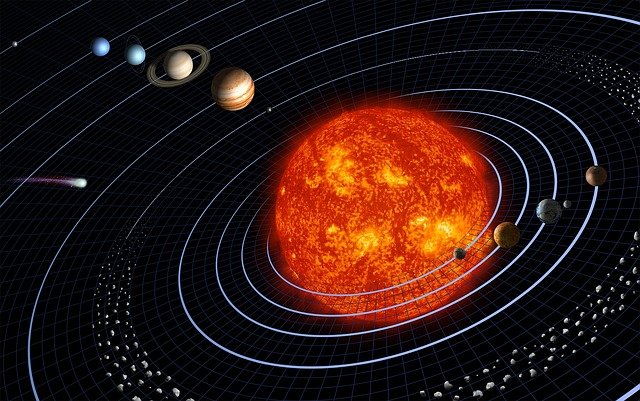Another idea for studying gravitational waves. Probes flying to Uranus and Neptune could be used
 According to research by a Swiss-Danish team of scientists, vehicles that will be sent to Uranus and Neptune in the next decade could be used to study Gravitational waves can be used. According to the scientists, the analysis of radio signals sent to Earth by vehicles in the outer regions of the solar system will make it possible to Space-time disturbances to analyze caused by gravitational waves.
According to research by a Swiss-Danish team of scientists, vehicles that will be sent to Uranus and Neptune in the next decade could be used to study Gravitational waves can be used. According to the scientists, the analysis of radio signals sent to Earth by vehicles in the outer regions of the solar system will make it possible to Space-time disturbances to analyze caused by gravitational waves.
Image source: Pixabay
The authors of the latest study claim that gravitational waves cause a Doppler effect cause in radio waves. When a Gravitational wave When a radio signal passes through it, it can easily interfere with it by causing a frequency shift. We can track down these small perturbations and use them to infer the passing gravitational wave, says the lead author of the study, Deniz Soyuer from the University of Zurich.
Soyuer and his team's idea is not new. There have been attempts before Gravitational waves to be demonstrated in this way. It was among others from the NASA tested, which uses the Horizon probe for this purpose, which is currently in the Kuiper belt is located. So why would it work this time? Scientists say that all that matters is the timing and purpose of the mission. The proposed missions to Uranus and Neptune could start around 2030 and will take many years to reach their goal. During this time there will be many opportunities to investigate them Gravitational waves to use. There will be a perfect window of time per year, 6 to 8 weeks, in which the position of the Earth, the Sun, and the vehicle will be suitable for this type of observation. So over the course of a 10-year journey, we will have 10 such research windows, explains Soyuer.
A major advantage of the proposal is that the probes would not have to take special equipment with them. Even now, all missions are equipped with instruments that allow the Doppler effect because it allows us to determine the vehicle's position in space and measure the gravitational interaction of planets. The basics of the research we propose are very simple, but the research itself will be difficult because of the through Gravitational waves The frequency changes caused are extremely small, Soyuer adds. An additional problem will be the filtering out of noise from the signal. And one of the biggest sources of this noise is mechanical noise generated by receiving antennas on Earth. However, scientists believe that in the near future we will make enough technical advances to filter out the noise and record small frequency changes in the radio signal, which will allow us to use vehicles flying to Neptune and Uranus to study gravitational waves coming from, for example Stellar mass black holes orbiting supermassive black holes are created, and if such studies could be conducted they would be a great asset to our knowledge. Currently we assign gravitational waves with the LIGO / Virgo detectors to. Another important step towards that Gravitational wave research is the LISA mission (Laser Interferometer Space Antenna), which ESA launched in 2034 with three Gravitational wave detectors want to start.